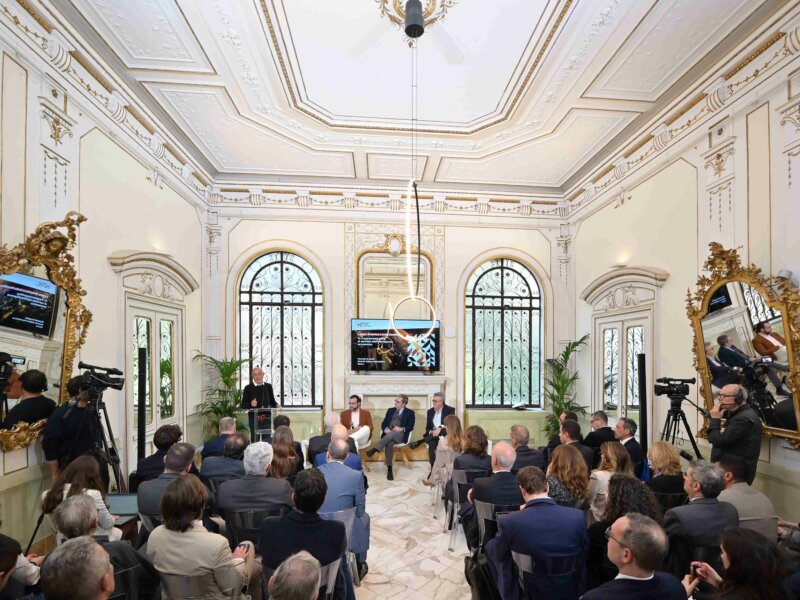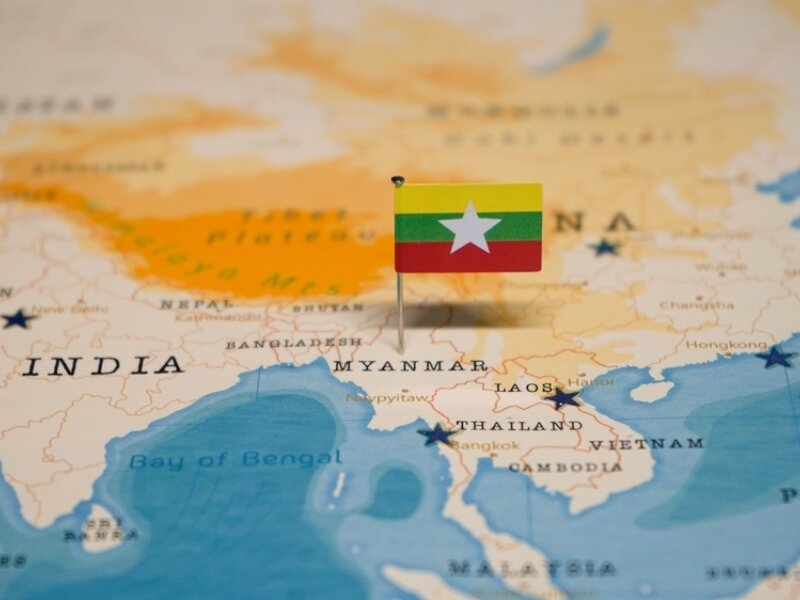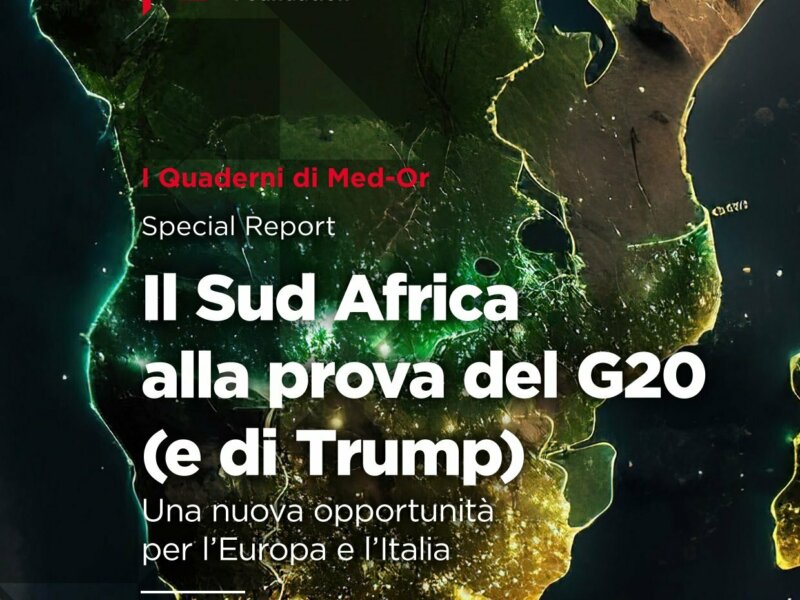Italy looks to Tunisia for a solution to the crisis
Italy confirms its support to the country, which looks increasingly precarious economically and affected by anti-western actors’s agendas. By Francesco Meriano

The game for Tunisia continues apace. International talks are becoming as urgent as what is at stake around Tunisia is getting high: avoiding a political and economic collapse of the country, through a financial assistance package from the EU and US$1.9 billion loan from the International Monetary Fund (IMF) – which is currently at the core of a hard negotiation with the Tunisian Government.
Both offers remain pending to the Tunisian Government’s restructuring of the country’s economy, through the privatisation of some state-owned enterprises, the cut of public subsidies and the reorganisation of the oversized civil service – demanded as guarantees by the Fund. However, President Kais Saied has repeatedly branded these measures as unacceptable “foreign diktats” and which, if implemented, could cost him fundamental consensus in the increasingly heated internal confrontation with the oppositions, the National Salvation Front. In this stalemate that has dragged on since summer 2022, public debt has grown and foreign exchange reserves have reached alert levels, exacerbating a civil discontent that now threatens the very stability of Tunisia.
A “Gordian knot” in the unravelling of which Italy plays a leading role. An example of this is the quick visit to Tunis of the Italian Prime Minister Giorgia Melon, organised in the space of just 48 hours, last week. At the conclusion of the talks held with President Kais Saied and her counterpart Najla Bouden, Meloni confirmed Rome’s all-round support for the Tunisian budget recovery and its will to make “every effort to reach an agreement with the IMF”. This issue was also discussed by PM Meloni in the meetings with French President Emmanuel Macron and the IMF Director Kristalina Georgieva, on the margins of the G7 in Hiroshima in May.
More importantly, the meeting paved the way to a broader mediation from the EU, which resulted in recent days summit between President Saied, PM Meloni (on her second Tunisian visit in the space of two weeks), the European Commission President Ursula von der Leyen and the Dutch Prime Minister Mark Rutte. Europe – said Von der Leyen during a joint press conference at the closing of the summit – would be ready to mobilise aid worth €900 million, after the agreement with theIMF, with which Rome and Brussels could play an effective mediation role.
These openings to the Tunisian Government echo the call for conciliation – with a not too veiled criticism of the IMF’s positions on Tunisia– formulated by PM Meloni at the G7 summit in Japan: “Are we sure that this rigidity is the best way forward? If the current Tunisian government goes home, do we know what the alternatives might be? I think the approach has to be pragmatic. Otherwise, we risk worsening situations that are already compromised.” Softening up the IMF and the United States – the IMF’s main shareholders – is one of the key objectives of the mission to Washington undertaken in recent days by the Italian Minister of Foreign Affairs, Antonio Tajani: on the agenda are bilateral talks with IMF Director Georgieva and the US Secretary of State Antony Blinken.
These diplomatic moves underline how much Italy would have to lose in the event of a Tunisian collapse. Not only because it would find itself in the frontline of the influx of irregular migrants, mostly from the Sahel and sub-Saharan Africa, who aim to reach Europe from the Tunisian coast and whose numbers have reached record levels (Ministry of the Interior’s data show the arrival of more than 15,000 people from January to the end of March 2023: figures destined to increase with the recent flare-up of the civil conflict in Sudan).
Energy is an equally crucial issue. The default of Tunis would threaten the flow of gas supplies from Algeria and channelled to Rome through the Transmed gas pipeline, which crosses Tunisian territory for about 370 km before reaching the Mediterranean and Sicily. Then there is the 230 km-long, 600MW-capacity El Med interconnector project overseen by Terna, intended to connect Capo Bon to Sicily, which was financed by the European Commission with €307 million and has the potential to make Italy a central hub for the redistribution of electricity in the Mediterranean. Plans for the construction of the Medusa submarine fibre-optic network, for which the European Investment Bank has provided €40 million and which should include a connection point between Bizerte and Mazara del Vallo, is also a consideration.
A third critical factor is linked to the proliferation of cross-border crime and Islamist terrorism. These phenomena have been exacerbated by the process of disintegration of the Libyan state and by the political-climatic disruption of the Sahel and the Horn of Africa, and would find in Tunisia an ideal launching pad to spread in the Maghreb and towards Italy. The instrumental destabilization carried out in these regions by the Russian paramilitary forces of the Wagner group should also be taken into account.
It is worth emphasising, in this regard, that Tunisia is at the crossroads of dynamics and interests that transcend regional borders and that are part of the competition between the West and Russia. The destabilisation of the North African chessboard – an already frayed “cordon sanitaire” between southern Europe and the centrifugal forces threatening sub-Saharan countries – would open a new front for Europe at a time when it is already facing a threat on its eastern borders. This would be a success for the Kremlin’s asymmetric strategy, which finds its most direct manifestation in the Ukrainian conflict.
While Russia might benefit from Tunisia plunging closer to the abyss, others are considering the opportunities to play ahead. China’s recent veiled suggestion that it might provide funds to Tunis as an alternative to IMF financing, is significant in this regard, especially as the Tunisian Government expressed, at the beginning of April, its willingness to join the ranks of the emerging BRICS economies – as Algeria has done – and to adhere, like Morocco, to the Belt and Road Initiative launched by Beijing.
The latest developments seem to have averted this potential checkmate for the West, at least for the time being. The first, cautious openings by President Saied – who in a press release noted the need to maintain “strategic relations” with the countries on the northern shore of the Mare Nostrum – follow the invitation to caution by the Chinese ambassador in Tunis, Wan Li, who defined it as “difficul” to disregard the IMF’s contribution. This backtracking was probably due to the setbacks suffered by the Chinese economy in recent months: engaged in the competition with the United States on the Pacific front and grappling with the aftershocks of the COVID-19 crisis, the country is rationing its resources and seems to indicate that Tunisia does not currently play a priority role in its foreign policy.
But the Chinese overture signals, in any case, that the game is now distinctly multilateral and that the playing field widens far beyond the borders of the Mediterranean basin. In this spirit, PM Meloni relaunched, at the end of her visit to Tunis, the idea already aired by President Saied himself of an international conference to address the migration-development nexus in the light of the current crisis. The summit could be held in Rome, at the heart of the Mediterranean, and involve Europe, North Africa, the Sahel and the Gulf Cooperation Council (GCC). The issue of Tunisia, on closer inspection, represents a potential field of engagement also for the Gulf monarchies and, in particular, for Saudi Arabia and the United Arab Emirates, which are vying for the role of frontrunners and unifiers of the Arab world. Both the UAE – already involved in Libya – and Saudi Arabia – a protagonist of the last Arab League summit, which saw the re-admission of Assad’s Syria among the organisation’s members – have shown their appreciation for President Saied and for his program of containment of Islamist currents.
Italy has every interest in winning this Mediterranean grand jeu – and so does Europe. But there are more than a few obstacles that risk stalling the negotiations (once again). One of these is the internal situation in Tunisia, where President Saied, who dissolved the Tunisian parliament manu militari, in 2021, has inaugurated a controversial authoritarian turn, promoting reforms aimed at strengthening presidential discretion and launching a pervasive campaign of politically motivated arrests. This is a delicate matter if the financing for the stability of this shaky regime is coming from European democracies and the United States, whose Congress has already expressed reservations about providing further aid to Tunis and facilitating negotiations between President Saied and the IMF. However, Rome and Brussels – for whom the impact of the Tunisian bankruptcy would be far more direct – are being pushed to focus on a realpolitik that, in the absence of an agreement, diverges clearly from the intransigence of the IMF and its Washington backers.
The recent quadrilateral summit is therefore a first step forward – and a valuable example of a relaunch of Italian strategic activism in the Mediterranean. But it also underlies a plurality of interests, both convergent and conflicting, from which it will be necessary to create a political agenda that is as homogeneous as possible, uniting different actors along the arc of the Mediterranean basin and across the Atlantic: an ambitious project, to be realised within an increasingly narrow timeframe.



